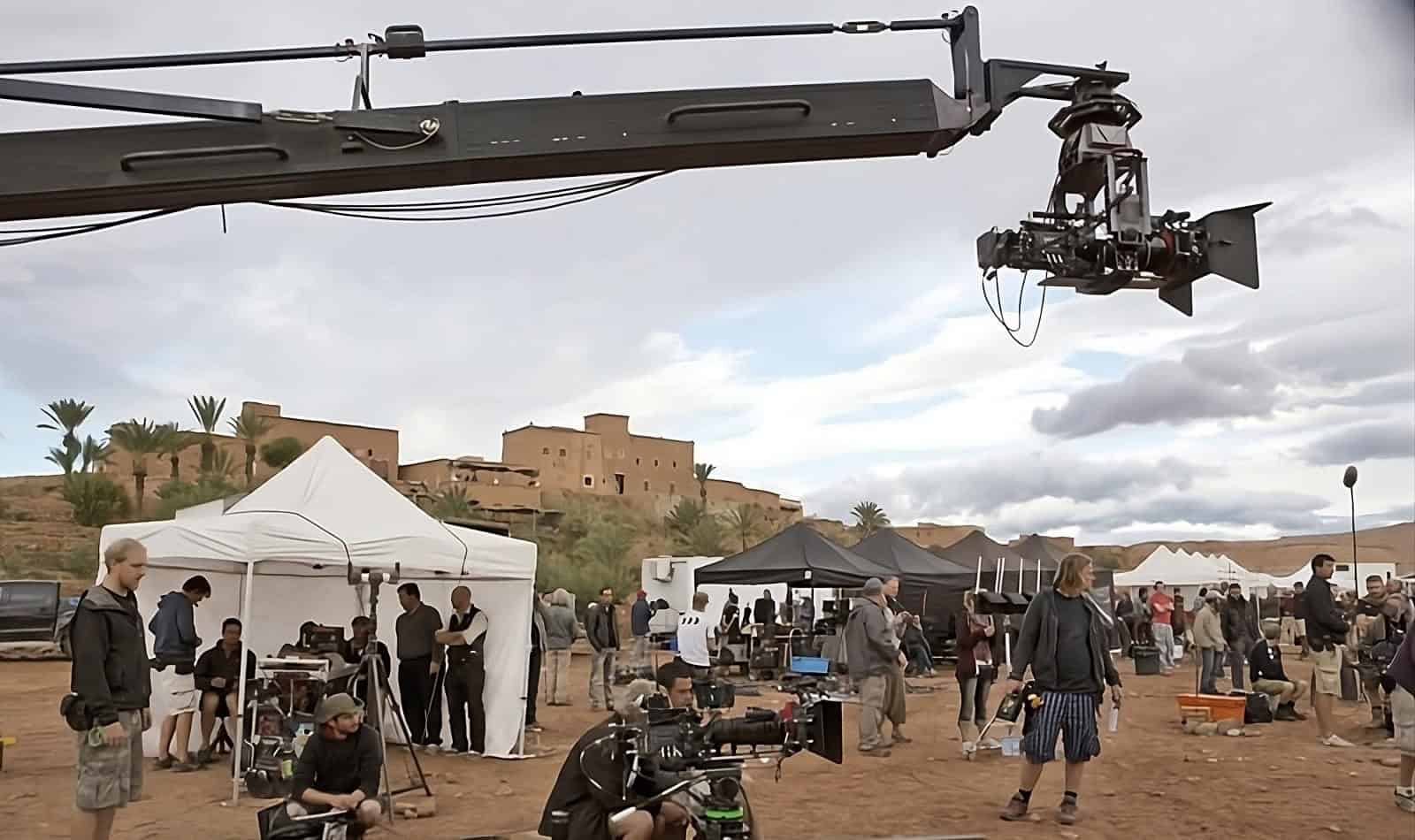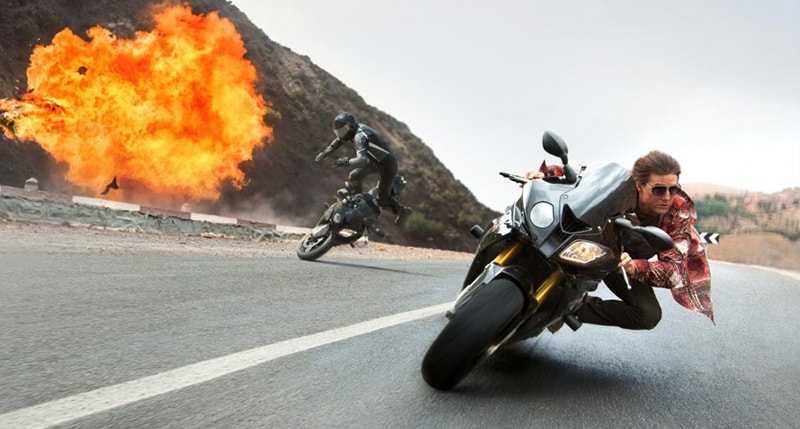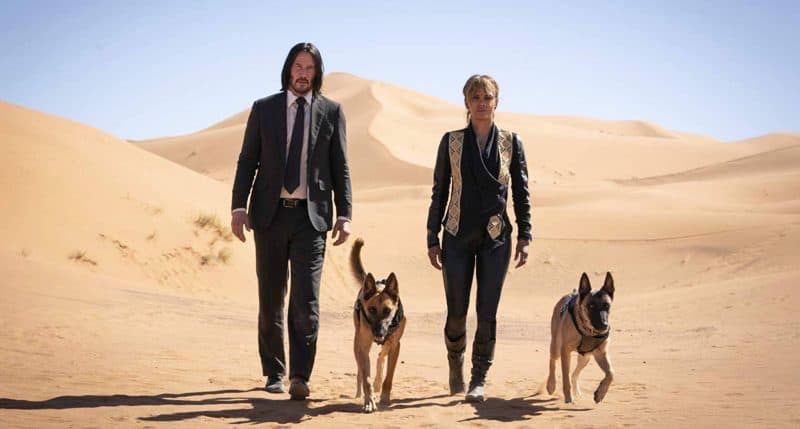
Understanding the Working Conditions, Overtime, and Pay Rates for Film Crews in Morocco
Morocco’s enchanting appeal as a filming location remains unrivalled, with its remarkable cultural diversity, captivating landscapes,

Morocco’s enchanting appeal as a filming location remains unrivalled, with its remarkable cultural diversity, captivating landscapes,

Explore Morocco’s film incentives guide: eligibility, benefits, and application process for filmmakers seeking breathtaking locations and financial perks.

Morocco’s enchanting appeal as a filming location remains unrivalled, with its remarkable cultural diversity, captivating landscapes,
Looking to film in Morocco? Caestus Films is a certified full-service company offering tailored solutions to facilitate your production process in Morocco. From location scouting and film permits to crew hiring and equipment rental, our experienced team of line producers and fixers can handle projects of any size and budget. Contact us today for a free quote.
Morocco: A Cinematic Paradise
As a filmmaker, you know that location is everything. It can make or break a film, set the tone, and capture the imagination of your audience. And if you’re looking for a location that can transport viewers to another world, look no further than Morocco. Here are the top 10 reasons why Morocco is fast becoming the destination of choice for filmmakers around the world.
1. Breathtaking Landscapes: From Deserts to Mountains and Ancient Cities
Morocco has a rich tapestry of landscapes that will take your breath away. The majestic Sahara Desert provides the perfect backdrop for epic adventures, while the towering Atlas Mountains provide a dramatic setting for high-stakes action sequences. Morocco’s ancient cities, including the iconic Marrakech and Fes, can take your audience back in time. And let’s not forget the stunning Atlantic and Mediterranean coastlines, which provide an idyllic backdrop for romantic scenes.
2. Perfect Filming Weather: Year-Round Sunshine
With over 300 days of sunshine a year, Morocco’s climate is a filmmaker’s dream. The country’s warm, sunny weather allows for uninterrupted shooting schedules and eliminates costly weather delays. Whether you’re looking to capture the heat of the desert or the cool breezes of the coast, Morocco’s year-round sunshine provides the perfect backdrop for your film.
3. Budget-Friendly Filmmaking: Government Incentives Galore
The Moroccan government is committed to promoting the country as a top filming destination. It offers a wide range of incentives, including tax breaks, reduced permit fees, and streamlined visa procedures, to attract international film productions. This makes Morocco a budget-friendly option for filmmakers of all sizes, allowing you to stretch your budget further and create high-quality content.
Morocco’s Film Incentives: A Complete Guide
4. Easy Access: Proximity to Europe and International Connections
Located just a short flight from major European cities, Morocco offers filmmakers access to stunning and diverse locations without the need for extensive travel. This proximity not only reduces travel costs but also allows for easier coordination between international crew members and the ability to source additional equipment or talent from nearby European countries if required. The convenience of Morocco’s location makes it an ideal choice for European filmmakers seeking an exotic and unique backdrop for their projects without having to travel too far from home.
5. Seamless Logistics: Modern Infrastructure and Transportation
Morocco’s modern infrastructure and transport network makes it easy to move equipment and personnel around the country. The country has an extensive network of highways, railways, and airports, ensuring that even remote locations are accessible. In addition, Morocco’s port facilities facilitate the import and export of film equipment, ensuring a seamless production process.
6. A Safe Haven: Political Stability and Security
Morocco’s political stability and commitment to security make it a safe and welcoming environment for film production. The government’s focus on maintaining a safe atmosphere has fostered a reputation for security, giving film crews peace of mind during their time in the country. Whether you’re shooting in the bustling streets of Marrakech or the tranquil desert dunes, Morocco offers a safe environment for your film production.
7. Professional Expertise: Skilled and Experienced Crews
Morocco is home to a pool of talented and experienced professionals who can help bring your film vision to life. The country’s skilled crews have worked on numerous international productions, including Lawrence of Arabia, Gladiator, and The Mummy. These local experts are well-versed in the latest filming techniques and technologies and can provide invaluable insight and support to ensure your production runs smoothly. With a wealth of professional expertise at your disposal, Morocco offers a unique opportunity to bring your film vision to life.
Working Conditions, Overtime, and Pay Rates for Film Crews in Morocco
8. Rich Film Legacy
Morocco has a rich history in the film industry, dating back to the 1920s. Some of the most iconic films of all time were shot in Morocco, including David Lean’s Lawrence of Arabia, Ridley Scott’s Gladiator, and Stephen Sommers’ The Mummy. The country’s varied landscapes and unique architecture have also made it a popular location for foreign films set in exotic locations, such as “The Living Daylights” and “Babel”. Morocco’s cinematic history has helped shape its reputation as a top destination for filmmakers and continues to attract production teams from around the world.
9. Streamlined Permits and Regulations
Recognizing the importance of the film industry, the Moroccan government has made it a priority to streamline the permitting and regulatory processes for international productions. The country has a dedicated film commission that works with filmmakers to obtain the necessary permits and navigate local regulations to ensure a smooth and efficient production process. With streamlined permits and regulations, Morocco offers a hassle-free environment for filmmakers to bring their visions to life.
A Complete Guide to Obtaining Moroccan Filming Permits for Foreign Productions
10. Rich Culture and Heartwarming Hospitality
Morocco’s diverse communities, vibrant markets, and rich heritage offer filmmakers a wealth of inspiration and opportunities for cultural immersion. Film crews are treated as guests of honour and locals are always eager to share their stories and traditions. Morocco’s warm hospitality and friendly people make it an ideal destination for filmmakers seeking a unique and enriching cultural experience. Whether you’re looking to capture the vibrant culture of Marrakech or the rich heritage of Fes, Morocco offers a wealth of cultural opportunities for filmmakers.
In Conclusion
Morocco is truly the ultimate filming destination. With its stunning landscapes, perfect weather, cost-effective production options and skilled crews, Morocco offers everything a filmmaker could ask for. From epic adventures in the desert to romantic scenes by the sea, Morocco’s diverse locations and cultures offer endless possibilities for creative storytelling. And with a government committed to supporting the film industry, streamlined permitting processes and a reputation for safety and hospitality, it’s no wonder Morocco is fast becoming a top destination for filmmakers from around the world. So, lights, camera, action – it’s time to start planning your next film production in Morocco!
Frequently Asked Questions
Morocco has over 300 days of sunshine per year, making it a filmmaker’s dream with its warm and sunny weather. This allows for uninterrupted shooting schedules and eliminates the need for weather-related delays.
How accessible is Morocco for international film productions?
Morocco is located just a short flight away from major European cities, making it easily accessible for international film productions. The country’s modern infrastructure and transportation network also make it easy to move equipment and personnel around the country.
Is Morocco a safe destination for film productions?
Yes, Morocco’s political stability and commitment to security make it a safe and welcoming environment for film productions. The government’s focus on maintaining a secure atmosphere has fostered a reputation for safety, giving film crews peace of mind during their time in the country.
What kind of professional expertise can filmmakers expect to find in Morocco?
Morocco is home to a pool of talented and experienced professionals who have worked on numerous international productions. These local experts can provide invaluable insights and support, ensuring that your production runs smoothly.
tags :
SHARE:
Popular Posts
Categories